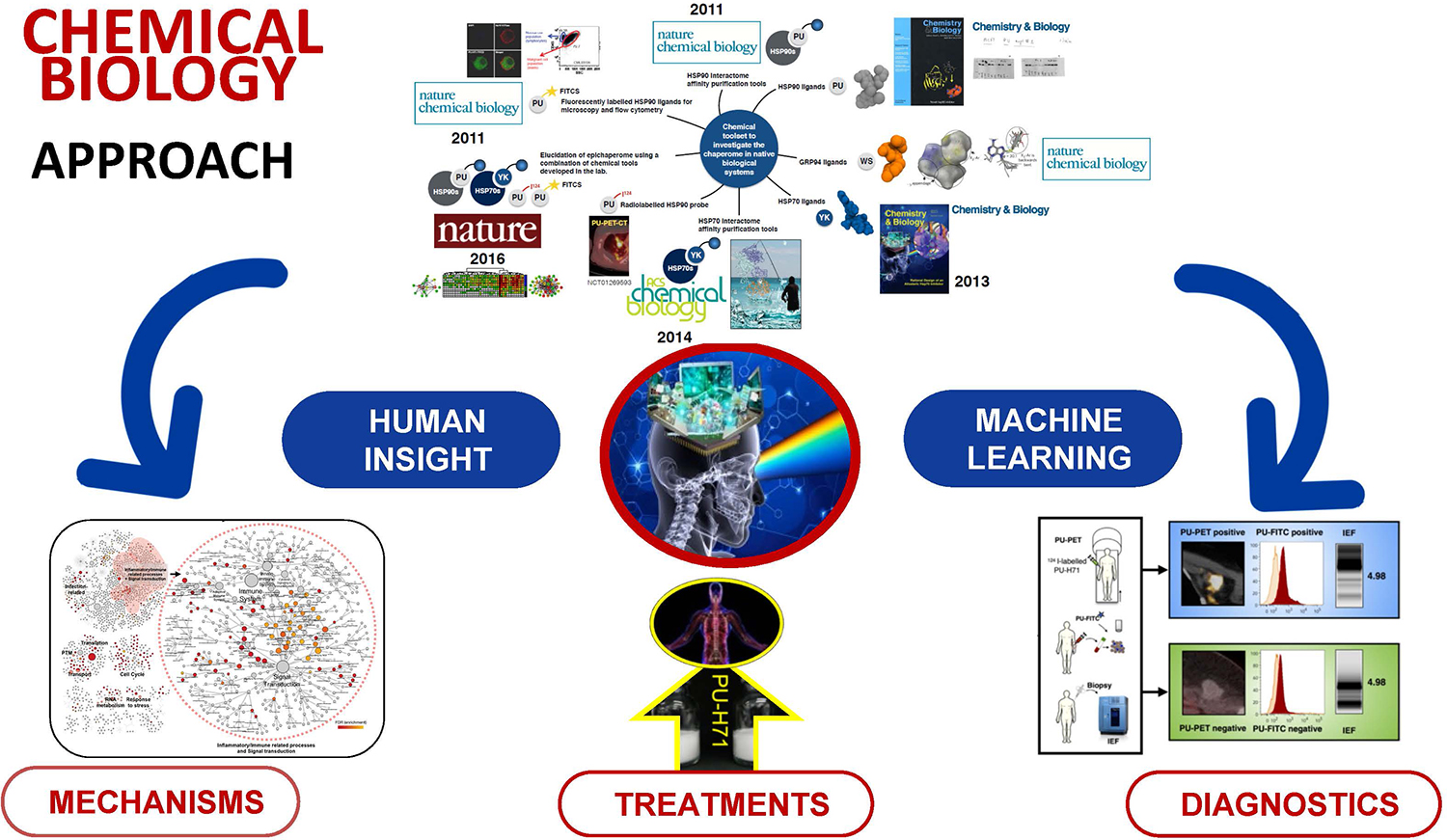The goal of my program is to investigate stressor maladaptation mechanisms such as they occur in several diseases. Our approach takes advantage of the way nature has evolved to control such stressors, and that is by a unique usage of the chaperome, referred here as the epichaperome. The epichaperome, which we discovered, is structurally, dynamically and functionally distinct from the housekeeping chaperome, and my lab has pioneered an approach to take advantage of such features. By using innovative methods, we develop small molecule chemical toolsets specifically targeted to the epichaperome; these act as “sensors” of the epichaperome, and in turn, of the chronic stressor-associated proteome-wide malfunctions. By the use of these unique toolsets we aim to understand, diagnose and treat cellular processes associated with chronic stressors. We address multiple mechanistic and biochemical questions less amenable to approaches that treat the chaperome as monolithic entity (i.e. the classical biochemical and genetic tools). We investigate in endogenous systems, both at the cellular and the organismal level, the inherent proteome changes and mechanisms that lead to disease, i.e. we can understand. By sensing disease states through the chemical toolsets, we go beyond investigation; we identify, measure and quantify, i.e. we can diagnose. By attacking the epichaperome specifically, we perturb the disease-causing proteome, and in turn revert or slow the disease phenotype, i.e. we can treat.
To summarize, we use a unique chemical biology approach to understand, diagnose and treat cellular processes associated with chronic cellular stress. My research group is interdisciplinary, and functions with the understanding that we are able to discover and synthesize pharmacological agents, determine their mechanisms of action and significance in disease treatment, and ultimately develop rational strategies for their use in clinic. Soon after joining the lab, trainees are exposed to views from colleagues with diverse backgrounds, and start to see problems from a new perspective, developing their understanding of disease and of ways to combat it. They also learn to approach projects in a collaborative and interdisciplinary manner, which we believe, are key to our success in the discovery and translation of novel diagnostics and therapeutics.
To successfully function in such diverse research interests, the lab relies on the services and input of several dedicated facilities available through the Tri-institutional program (MSKCC, Weill Cornell Medicine, Rockefeller U). It has also established a strong interdisciplinary and synergistic network of collaborations to facilitate the translation of our findings from bench to bedside, in both cancer and Alzheimer’s disease. Through my dual appointment in the Department of Medicine and the Program in Chemical Biology, I have direct contact with and play a bridging role between the basic scientists and clinicians involved in these interdisciplinary efforts.

